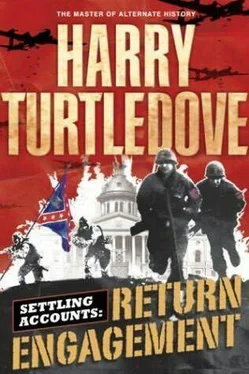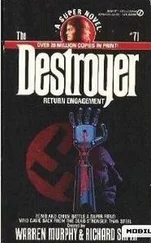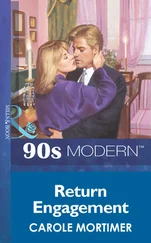Harry Turtledove - Return engagement
Здесь есть возможность читать онлайн «Harry Turtledove - Return engagement» весь текст электронной книги совершенно бесплатно (целиком полную версию без сокращений). В некоторых случаях можно слушать аудио, скачать через торрент в формате fb2 и присутствует краткое содержание. Жанр: История, на английском языке. Описание произведения, (предисловие) а так же отзывы посетителей доступны на портале библиотеки ЛибКат.
- Название:Return engagement
- Автор:
- Жанр:
- Год:неизвестен
- ISBN:нет данных
- Рейтинг книги:5 / 5. Голосов: 1
-
Избранное:Добавить в избранное
- Отзывы:
-
Ваша оценка:
- 100
- 1
- 2
- 3
- 4
- 5
Return engagement: краткое содержание, описание и аннотация
Предлагаем к чтению аннотацию, описание, краткое содержание или предисловие (зависит от того, что написал сам автор книги «Return engagement»). Если вы не нашли необходимую информацию о книге — напишите в комментариях, мы постараемся отыскать её.
Return engagement — читать онлайн бесплатно полную книгу (весь текст) целиком
Ниже представлен текст книги, разбитый по страницам. Система сохранения места последней прочитанной страницы, позволяет с удобством читать онлайн бесплатно книгу «Return engagement», без необходимости каждый раз заново искать на чём Вы остановились. Поставьте закладку, и сможете в любой момент перейти на страницу, на которой закончили чтение.
Интервал:
Закладка:
He slept on a real steel-framed cot with a real mattress that night. When first conscripted, he'd hated Army cots. They weren't a patch on his bed back home. Compared to the floor of a jouncing freight car, though, or to sleeping in a muddy foxhole, this one was a good approximation of heaven. He got rid of at least a few of the kinks of travel before reveille the next morning.
Breakfast was even better than supper had been. Bacon and real scrambled eggs, biscuits with gravy, fresh-brewed coffee… He ate till he was groaningly full. He wasn't the only one, either. The cooks had a devil of a time keeping ahead of the ravening hordes of hungry men.
Content with the world, Armstrong was slowly walking back to his tent when a metallic buzzing in the air made him look west. "What the hell's that?" he said.
"Looks like a crop-duster," another soldier said. The fabric-covered biplane certainly wasn't very impressive. Armstrong felt as if he could run as fast as it flew. He knew that wasn't so, but the impression remained.
A few men pointed at the biplane. More paid no attention to it at all as it sputtered along over the Army encampment at Woodside. Armstrong might have been the only one who saw a crate tumble out of it. He had time for no more than a startled, "What the-?" before the crate hit the ground.
Boom! The next thing Armstrong knew, he was on the ground. That wasn't the blast-it was reflex painfully acquired on the battlefield. When something blew up, you hit the dirt. You did if you wanted to keep breathing, anyhow.
A soldier off to his right didn't hit the dirt fast enough-and let out a startled squawk of pain. He pulled a tenpenny nail out of his arm. The nail was red and wet with his blood from point to head.
"Find an aid station," Armstrong said. "There's a Purple Heart for you."
The soldier just gaped at him. Ignoring the man, Armstrong jumped to his feet and ran toward the place where the makeshift bomb had gone off. The biplane, meanwhile, buzzed off in the direction from which it had come. Nobody took a shot at it. Very likely, only a handful of people had any idea it had dropped the improvised bomb.
Makeshift, improvised, or not, the bomb did everything its equivalent from a fancy ordnance factory might have done. It knocked things down. It blew things-and soldiers-up. It sprayed fragments of sharp metal (nails, here) all over the place. What more could you ask for from something that fell out of an airplane?
Armstrong tripped over a leg and almost fell. He gulped. Breakfast nearly came up. The rest of the man wasn't attached to the leg. A little closer to where the Mormons' explosive had hit, he found a soldier as neatly disemboweled as if he'd be cut up for butcher's meat in the next few minutes. Then he came upon someone he could actually help: a sergeant with a mangled hand trying without much luck to bandage himself with the other. Kneeling beside him, Armstrong said, "Here, let me do that."
"Thanks, kid," the noncom got out through clenched teeth. "What the hell happened?" Armstrong told him in a few words. The sergeant swore. "Ain't that a son of a bitch? Goddamn Mormons got bombers?"
"Looks that way." Armstrong stared west, then shook his head. "Who knows what else they've got, too?"
Brigadier General Abner Dowling rode a train east toward Philadelphia. The journey was one he would much rather not have made. He'd known it was coming, though. He hadn't been recalled by the War Department. That would have been bad enough. But instead, he'd been summoned by the Joint Committee on the Conduct of the War. That was at least ten times worse.
Congress had formed such a committee once before, during the War of Secession. It hadn't proved a good idea then. The committee had crucified officers it didn't like, and terrorized more than it crucified. It hadn't done a damn thing to keep the war from being lost. And now, just to prove how clever the elected rulers of the country were, they'd decided to reprise what hadn't worked before.
And, of course, Abner Dowling was the first, to say nothing of the most obvious, target the committee had chosen. People from Bangor to San Diego were going to be yelling, "Who lost Ohio?" They were going to be pointing fingers and shouting for heads. And there was Dowling, right square in the crosshairs. They didn't even need to look very hard.
If a Congressman can spot me, I must be obvious, Dowling thought savagely. He could make a good guess about what would happen when he got to the de facto capital. They were going to pin everything on him. They would say that, if the U.S. forces in Ohio had had a general who knew his ass from a hole in the ground, everything would have gone fine, and soldiers in green-gray would have chased those butternut bastards all the way down through Kentucky and into Tennessee, if not into Alabama and Mississippi.
They'd expect him to fall on his sword, too. What else could he do? He'd issued the orders-the orders that hadn't worked. If he'd issued some different orders, wouldn't things have turned out differently? Wouldn't they have turned out better?
Of course they would. That was how Congress, with its infinite wisdom and twenty-twenty hindsight, was bound to see things, anyhow.
"Oh, yes. Of course," Dowling muttered. The woman across the aisle from him gave him an odd look. He ignored her.
An hour out of Pittsburgh, the train slowed and then stopped. They hadn't come to a town, not even a whistlestop. They were out in the middle of nowhere, or as close to the middle of nowhere as you could get in a crowded state like Pennsylvania. A telegraph line ran next to the tracks. A big crow-a raven?-sat on the wire staring in through the window at Dowling. I'm not dead yet, he thought. Then he wished that last word hadn't occurred to him.
An important-looking man in an expensive suit and a dark homburg reached up and grabbed the cord that rang for the conductor. In due course, that blue-uniformed worthy appeared. "See here," the important-looking man said. "I demand to know what has happened to this train. I have an urgent engagement in the capital."
Dowling had an urgent engagement in the capital, too. He wasn't eager enough to make a fuss about it, though. As far as he was concerned, the train could sit there as long as it pleased. He glanced out at the big black bird on the wire. If we do wait a long time, you'll starve before I do.
The conductor was a tall, pale, skinny man who looked as if he'd been working on trains forever. "Well, I'll tell you," he said in a broad Down East accent. "Th' engineer calls it sabotage." He stretched out the final a till it seemed to last about a minute and a half.
"Sabotage!" Half a dozen people in the car echoed the word; all of them pronounced it much faster than the conductor had.
"Ayuh," he said. Dowling needed a moment to understand that meant yes. "Hole in the track up ahead. Hole in the ground up ahead. Damn big hole." He spoke with a certain dismal satisfaction.
"How long are we going to be stuck here?" the important-looking man asked. "My missing that meeting would be a disaster-a disaster, I tell you."
"Well, if you care to, you can walk." The conductor stretched that last a as far as he had the one in sabotage. The important-looking man glared furiously. Several other people snickered. That only made Mr. Urgent Meeting more unhappy. The conductor continued, "They got a crew workin' on it. Be another hour, hour and a half, I reckon."
Some passengers sighed. Some groaned. The important-looking man fumed. Dowling wondered just how much sabotage the Confederates were bringing off in the USA. Not as much as we are in the CSA, I hope. He also wondered how Lucullus Wood and the other stubborn blacks in Kentucky were doing. Maybe the Confederates would have hit Ohio even harder than they had if not for Negro sabotage. But they'd hit plenty hard enough as things were, dammit.
Читать дальшеИнтервал:
Закладка:
Похожие книги на «Return engagement»
Представляем Вашему вниманию похожие книги на «Return engagement» списком для выбора. Мы отобрали схожую по названию и смыслу литературу в надежде предоставить читателям больше вариантов отыскать новые, интересные, ещё непрочитанные произведения.
Обсуждение, отзывы о книге «Return engagement» и просто собственные мнения читателей. Оставьте ваши комментарии, напишите, что Вы думаете о произведении, его смысле или главных героях. Укажите что конкретно понравилось, а что нет, и почему Вы так считаете.












